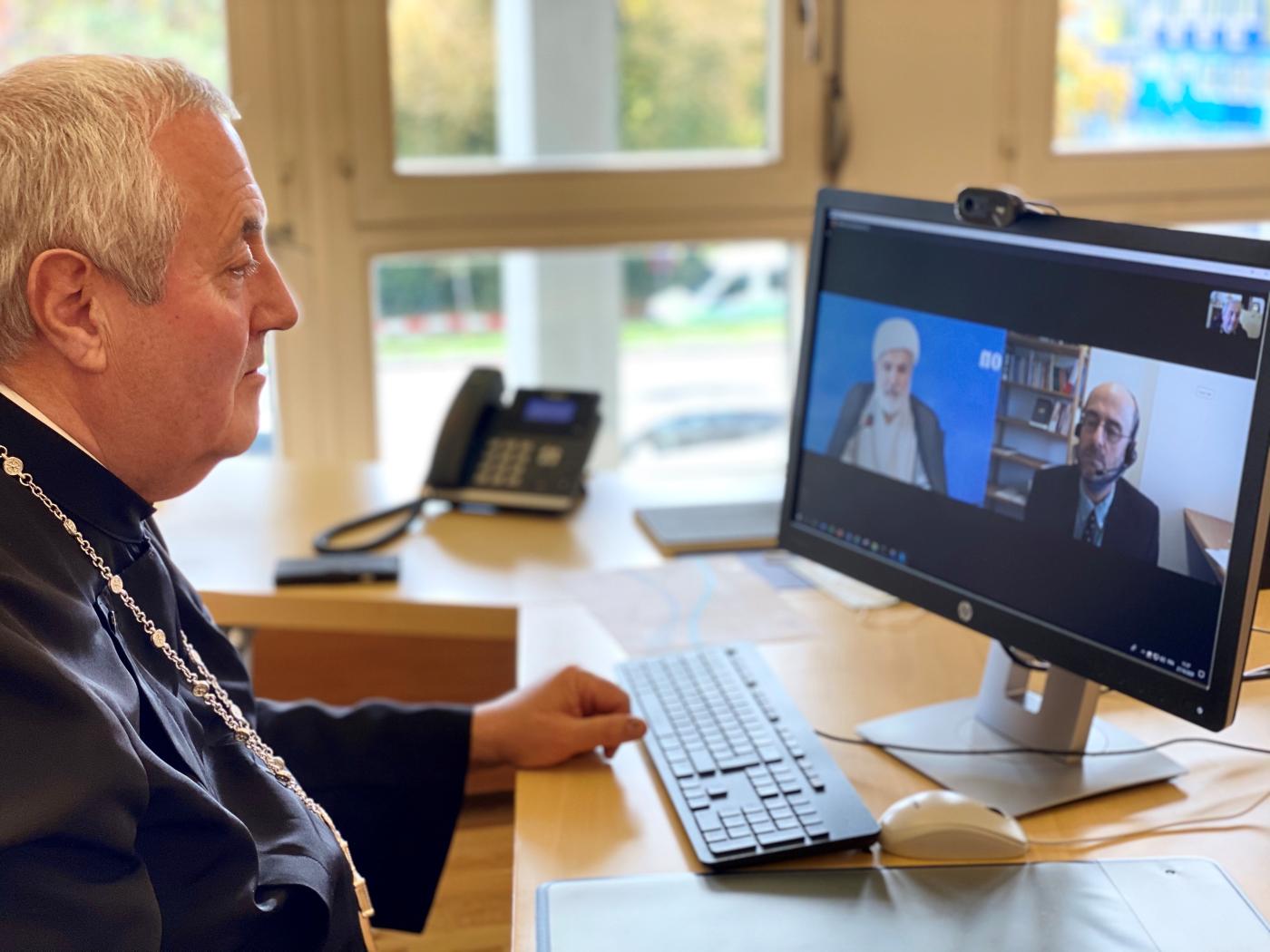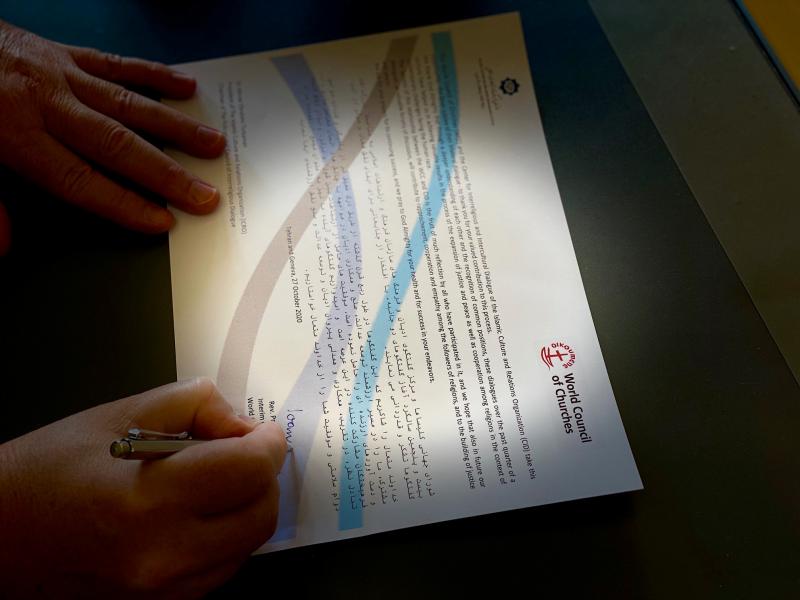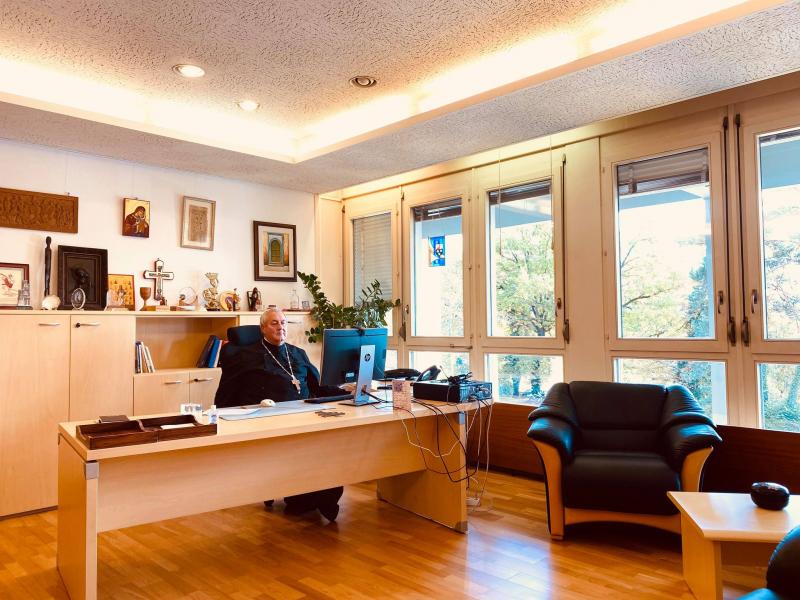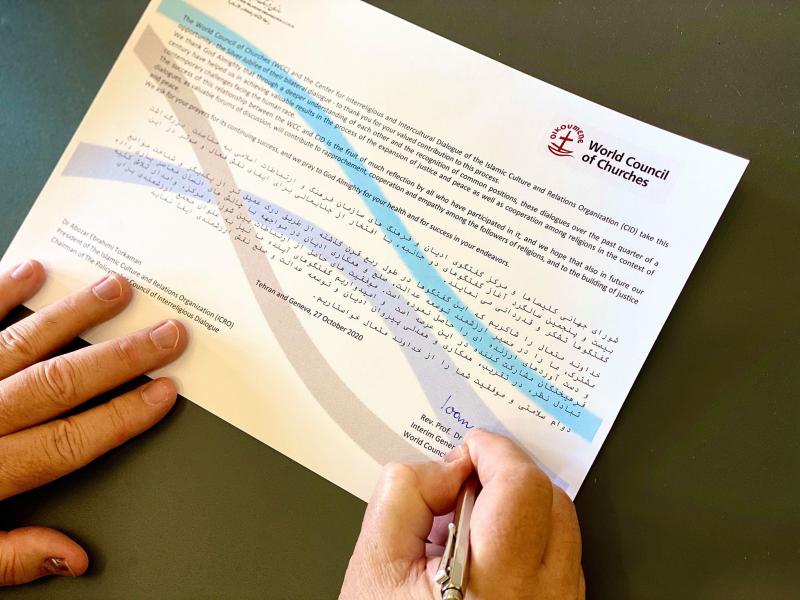Signing a celebratory certificate commemorating 25 years of fruitful dialogue, leaders from the World Council of Churches (WCC) and the Center for Interreligious and Intercultural Dialogue of the Islamic Culture and Relations Organization in Tehran met online on 27 October.
The certificate, jointly prepared in English and Persian by the WCC and the Center for Interreligious and Intercultural Dialogue, is to be sent to the more than 50 participants in the bilateral dialogue over the last 25 years, thanking each of them for their contribution. “We thank God Almighty that through a deeper understanding of each other and the recognition of common positions, these dialogues over the past quarter of a century have helped us in achieving valuable results in the process of the expansion of justice and peace as well as cooperation among religions in the context of contemporary challenges facing the human race,” reads the document.
Beginning with a meeting in Geneva in 1995, and alternating between there and Tehran, the WCC and the Center for Interreligious and Intercultural Dialogue have met regularly, addressing a number of themes including: "Religion and the Contemporary World,” “Religions and Globalization,” “Religion and Peaceful Coexistence" and “Spirituality and Modernity.”
WCC interim general secretary Rev. Prof. Dr Ioan Sauca exchanged greetings with Dr Abuzar Ebrahimi Torkaman, head of the Islamic Culture and Relations Organization, and Dr Mohammad Mahdi Tashkiri, director general of the Center for Interreligious and Intercultural Dialogue.
Confirming the continuing commitment of the WCC to this significant dialogue process, Sauca commented: “The growth of interreligious dialogue is one of the most encouraging developments of recent times. However, although dialogue between Muslims and Christians can bring many blessings, we cannot suggest that it is always easy. Those who participate in dialogue must be willing to listen with humility and attentiveness as well as speaking clearly and confidently from the perspective of their own faith; to reflect with a spirit of healthy self-criticism, and to try to see reality as their partners in dialogue understand it.”
Sauca also expressed gratitude for the contribution to this dialogue of the WCC’s member churches in Iran, recognizing the importance of dialogue both at a formal level between organisations, and also at the level of everyday life.
In response, Ebrahimi reflected that, during 25 years and nine rounds of dialogue, there have been many achievements. “During this relatively long period of time, a magnificent and strong structure has been erected, the foundations of which are based on mutual trust, broad commonalities, the will of the two sides to develop mutual understanding, as well as cooperation in different fields,” he said. “Extremism and tendency towards violence in the sense of excluding others and excommunicating them have never been accepted in Islam and Christianity. Religion calls for rationality and closes the way to violence, but violence arises in the absence of rationality. We, too, believe that traversing this path is not an easy task and that dialogue is essentially based on the manners and ethics. As per our religious beliefs, proper listening is the cause of glad tidings by God Almighty and a good question asked is equal to half of knowledge.” Ebrahimi concluded.
Sauca said that as soon as it is safe to do so, the WCC looks forward to hosting a delegation from the Center for Interreligious and Intercultural Dialogue in Geneva for the next round of dialogue, at which participants will review the achievements of the past 25 years and reflect together on the path forward.












